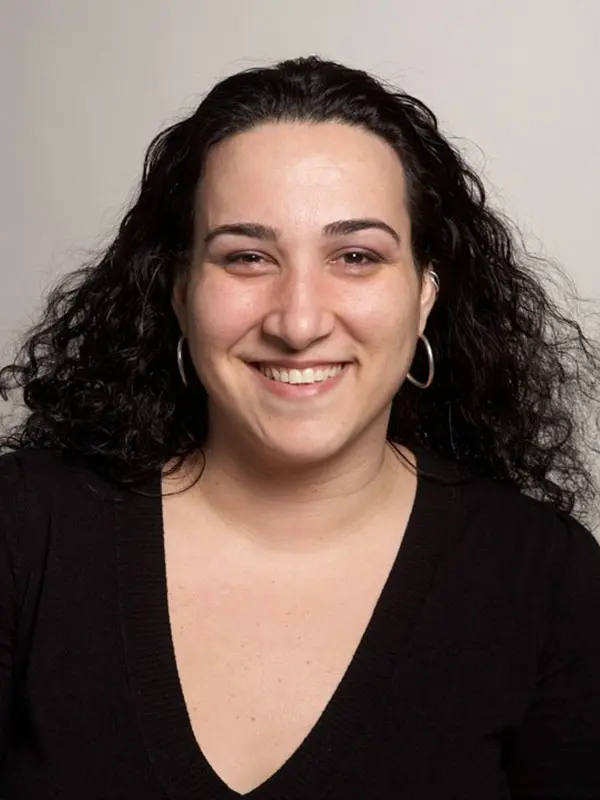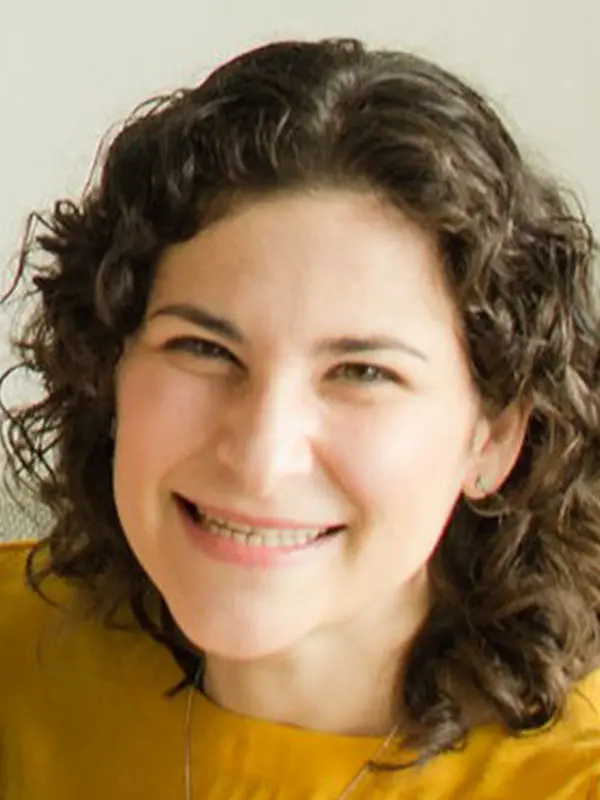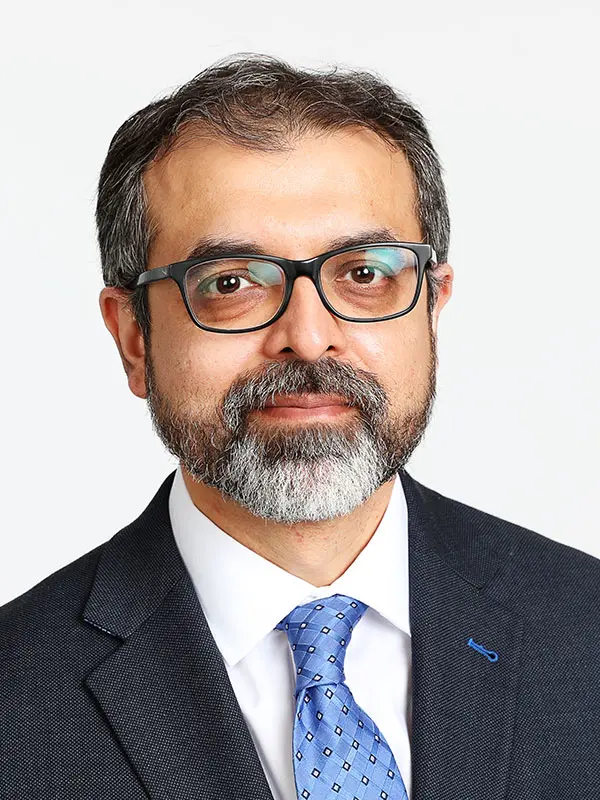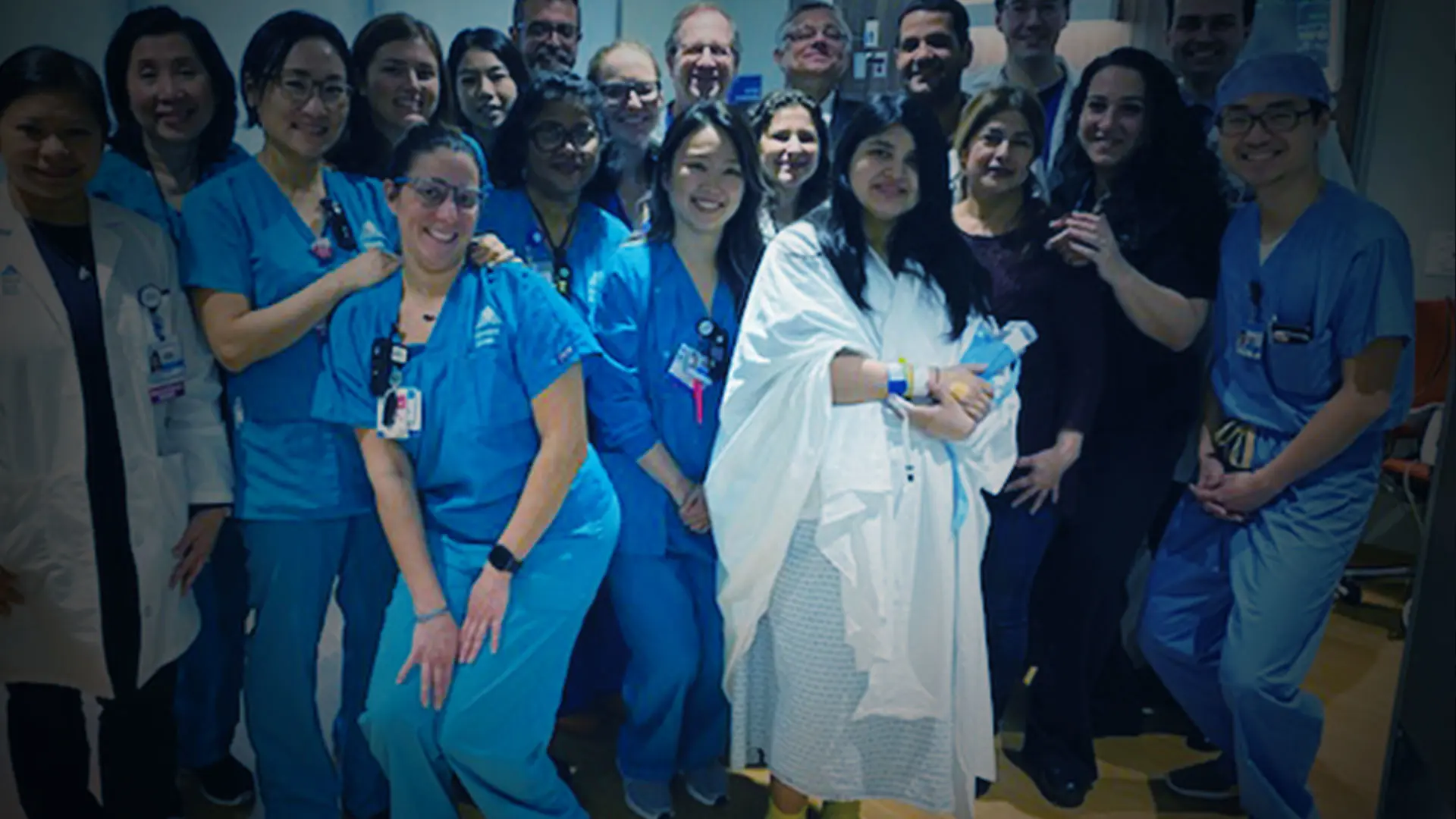In January 2020, Leslie Echeverria, 24, gave birth to a healthy baby girl at The Mount Sinai Hospital—the norm at Mount Sinai, where physicians and medical staff perform thousands of uneventful deliveries every year.
But Ms. Echeverria, born deaf and with severe congenital heart disease (CHD), was a high-risk patient. She had severe pulmonary valvular regurgitation, stenosis of the pulmonary valve, tricuspid valve regurgitation, and enlargement of the right side of her heart—both the right atrium and ventricle with right ventricular dysfunction. The delivery of her baby took place in the hospital’s Cardiac Care Unit (CCU), a first for Mount Sinai Heart and Mount Sinai’s Department of Obstetrics, Gynecology and Reproductive Science.
“It was pretty unusual,” says Lauren Ferrara, MD, Assistant Professor of Obstetrics, Gynecology and Reproductive Science, and a specialist in Maternal Fetal Medicine, who managed Ms. Echeverria’s pregnancy with Jill Berkin, MD, Assistant Professor of Obstetrics, Gynecology and Reproductive Science, and a specialist in Maternal Fetal Medicine. “The CCU certainly wasn’t used to this.”
The birth was the result of meticulous planning and coordination among medical disciplines, including Obstetrics and Gynecology, Anesthesiology, Perioperative and Pain Medicine, the Institute for Critical Care Medicine, and the Mount Sinai Adult Congenital Heart Disease (ACHD) Center.
Medical advances over the past 30 years have made it possible for women with all forms of CHD to live long lives and have children of their own, says Ali N. Zaidi, MD, Associate Professor of Medicine (Cardiology), and Pediatrics, and Director of the Mount Sinai ACHD Center. But, he adds, many of these women do not receive the cardiovascular care they need as they transition from childhood to adulthood, and lack the full understanding of their medical needs. To meet the needs of this high-risk group of patients, Mount Sinai has developed an ACHD and Maternal Fetal Medicine Clinic. Mount Sinai’s expertise in the field was recognized in November 2020, when the ACHD Center was accredited by the Adult Congenital Heart Association as a Comprehensive Care Center, one of just three programs in New York State and 36 nationwide with this designation.
“Having all the tools necessary for the cardiac surgeons was important.”
Lauren Ferrara, MD
A multidisciplinary approach to managing women with CHD who want to become pregnant is recommended by American Heart Association guidelines. For example, patients and their partners should receive genetic counseling and counseling about the potential decline in cardiac function. Patients are also advised to receive care from an OB/GYN and a cardiologist with experience in adult CHD and deliver at a tertiary care facility like Mount Sinai.
In Ms. Echeverria’s case, physicians were particularly concerned about arrhythmias and right ventricular dysfunction or right heart failure during the peripartum period, which would have required advanced measures like mechanical circulatory support. With this potential for serious heart complications, the team recommended that she deliver vaginally, and they decided the best place to deliver would be the CCU. Organizing a delivery there was difficult, Dr. Ferrara said, “but having all the tools necessary for the cardiac surgeons was important."
Ms. Echeverria was admitted to The Mount Sinai Hospital at 35 weeks gestation, and physicians induced labor at 38 weeks. The makeshift delivery room was crowded, periodically, with as many as 10 people. Dr. Berkin and the Maternal Fetal Medicine team were accompanied closely by clinicians from Mount Sinai Heart, led by Dr. Zaidi. Her anesthesia care was managed by a team, including Yaakov Beilin, MD, Director of Obstetric Anesthesia, and Professor of Anesthesiology, Perioperative and Pain Medicine, and Obstetrics, Gynecology and Reproductive Science. Ms. Echeverria’s mother was in the room, along with a sign-language interpreter and a critical care specialist. The delivery, by Dr. Ferrara, went smoothly, and Ms. Echeverria named her new baby girl Shayla.
It was not until Ms. Echeverria became pregnant that she learned about the seriousness of her heart condition. “After I got pregnant, I found out so much more about my heart risks with pregnancy,” she says. Infected by the rubella virus while her mother was pregnant with her in Ecuador, Ms. Echeverria had two open-heart surgeries a few years after she was born. But growing up in Queens, she played sports and did not experience pain or other symptoms. At the end of her first trimester, she came under the care of Drs. Ferrara and Zaidi, who began to carefully coordinate her delivery.
Ms. Echeverria will need heart surgery in the near future. But right now, she says, “I am not worrying too much about my heart problems. I want to keep fighting for my goals and keep surviving. I just want to be successful with my baby.”
Featured

Lauren Ferrara, MD
Assistant Professor of Obstetrics, Gynecology and Reproductive Science

Jill Berkin, MD
Assistant Professor of Obstetrics, Gynecology and Reproductive Science

Ali N. Zaidi, MD
Associate Professor of Medicine (Cardiology), and Pediatrics, and Director of the Mount Sinai ACHD Center
